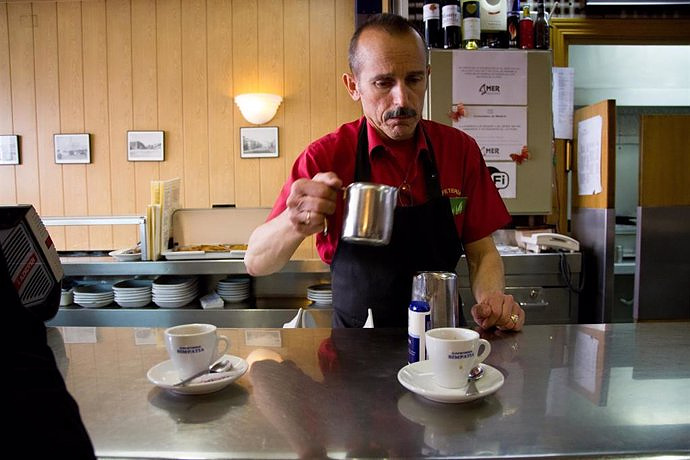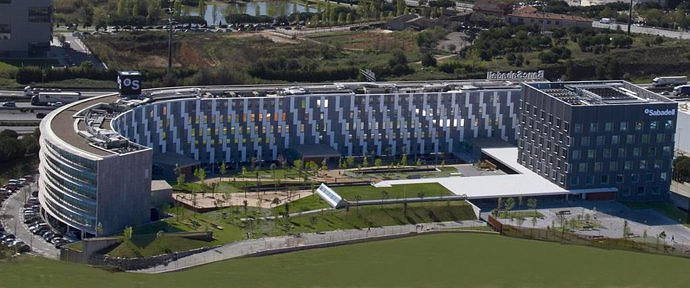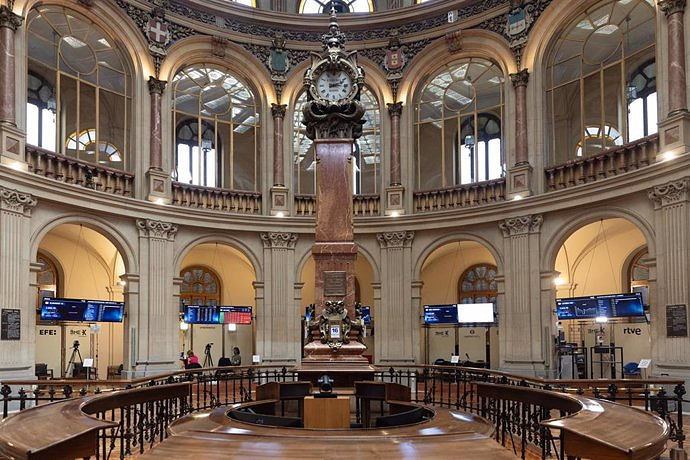MADRID, 18 Jul. (EUROPA PRESS) -
The president of Extremadura, Guillermo Fernández Vara, has denied this Monday that the new Democratic Memory Law questions the Transition, but has recognized that he would prefer that this norm had gone ahead without the support of Bildu.
"I would have preferred that this law, like others, had come out without the support of political forces that in the past were far removed from the position that the PSOE has," he said in an interview on Radio Nacional, collected by Europa Press, about whether he understands the criticism of historical socialists towards this law.
Asked if this new Law of Memory can question the look on the Transition since it will recognize victims of Human Rights violations until 1983, Vara has rejected this position. "I am not able to see that in the law and I have looked at it actively and passively," he stressed.
The Extremaduran leader has indicated that he is not bothered that the laye has been backed by Bildu, but "it would have been very good if it could have been approved with the support of the two major parties." "Unfortunately, the PP is not here and is not expected", he has criticized, at the same time that he has underlined that they had been "too" long with the "majority game".
"If we really want, and there are many people who probably want it, that Bildu does not participate in the big decisions of this country, whoever is in the opposition has to help to make that happen, if not, it is not possible," he asserted.
The president of Castilla-La Mancha, Emiliano García-Page, has expressed his concern about the fact that the permanence of United We Can means that major State agreements cannot be reached with the Popular Party.
In this sense, Vara has indicated that he does not see a "real disposition" of the PP to reach agreements if "it is not even capable of making the constitutional organs work."
According to Vara, Spain lives installed in the "great anomaly" because the 'popular' do not want to "lose control over the Constitutional Court and the General Council of the Judiciary." Likewise, he has pointed out that he expected an "immediate unlocking" to renew the Judicial Power with the arrival of the new leader of the PP, Alberto Núñez Feijóo
"He has changed his person, but the attitude is still similar. I don't know if the Madrid airs that we come from the provinces make us change," he settled.

 Exploring Cardano: Inner Workings and Advantages of this Cryptocurrency
Exploring Cardano: Inner Workings and Advantages of this Cryptocurrency Seville.- Economy.- Innova.- STSA inaugurates its new painting and sealing hangar in San Pablo, for 18 million
Seville.- Economy.- Innova.- STSA inaugurates its new painting and sealing hangar in San Pablo, for 18 million Innova.- More than 300 volunteers join the Andalucía Compromiso Digital network in one month to facilitate access to ICT
Innova.- More than 300 volunteers join the Andalucía Compromiso Digital network in one month to facilitate access to ICT Innova.-AMP.- Ayesa acquires 51% of Sadiel, which will create new technological engineering products and expand markets
Innova.-AMP.- Ayesa acquires 51% of Sadiel, which will create new technological engineering products and expand markets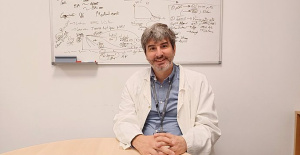 Study identifies new genetic form of Alzheimer's
Study identifies new genetic form of Alzheimer's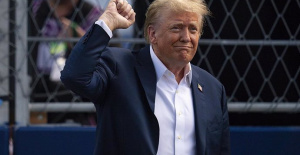 Judge Juan Merchan fines Trump for contempt of court in 'Stormy Daniels' bribery case
Judge Juan Merchan fines Trump for contempt of court in 'Stormy Daniels' bribery case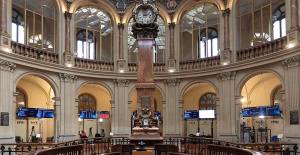 The Ibex 35 rises 0.58% at closing thanks to the boost from Indra and Grifols
The Ibex 35 rises 0.58% at closing thanks to the boost from Indra and Grifols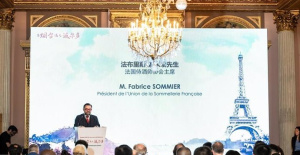 STATEMENT: Yantai Holds “When Yantai Met Bordeaux” Wine Gift Box Launch Event
STATEMENT: Yantai Holds “When Yantai Met Bordeaux” Wine Gift Box Launch Event How Blockchain in being used to shape the future
How Blockchain in being used to shape the future Not just BTC and ETH: Here Are Some More Interesting Coins Worth Focusing on
Not just BTC and ETH: Here Are Some More Interesting Coins Worth Focusing on UMH researchers are working on a high-quality apricot crop that requires less irrigation water
UMH researchers are working on a high-quality apricot crop that requires less irrigation water The UPV develops an application to improve the quality of life of patients with glioblastoma
The UPV develops an application to improve the quality of life of patients with glioblastoma A sensor system obtains the fingerprint of essential oils and detects if they have been adulterated
A sensor system obtains the fingerprint of essential oils and detects if they have been adulterated Faraday UPV presents the 'Origin' rocket to exceed 10 km of flight: "It is the beginning of the journey to space"
Faraday UPV presents the 'Origin' rocket to exceed 10 km of flight: "It is the beginning of the journey to space" A million people demonstrate in France against Macron's pension reform
A million people demonstrate in France against Macron's pension reform Russia launches several missiles against "critical infrastructure" in the city of Zaporizhia
Russia launches several missiles against "critical infrastructure" in the city of Zaporizhia A "procession" remembers the dead of the Calabria shipwreck as bodies continue to wash up on the shore
A "procession" remembers the dead of the Calabria shipwreck as bodies continue to wash up on the shore Prison sentences handed down for three prominent Hong Kong pro-democracy activists
Prison sentences handed down for three prominent Hong Kong pro-democracy activists ETH continues to leave trading platforms, Ethereum balance on exchanges lowest in 3 years
ETH continues to leave trading platforms, Ethereum balance on exchanges lowest in 3 years Investors invest $450 million in Consensys, Ethereum incubator now valued at $7 billion
Investors invest $450 million in Consensys, Ethereum incubator now valued at $7 billion Alchemy Integrates Ethereum L2 Product Starknet to Enhance Web3 Scalability at a Price 100x Lower Than L1 Fees
Alchemy Integrates Ethereum L2 Product Starknet to Enhance Web3 Scalability at a Price 100x Lower Than L1 Fees Mining Report: Bitcoin's Electricity Consumption Declines by 25% in Q1 2022
Mining Report: Bitcoin's Electricity Consumption Declines by 25% in Q1 2022 Oil-to-Bitcoin Mining Firm Crusoe Energy Systems Raised $505 Million
Oil-to-Bitcoin Mining Firm Crusoe Energy Systems Raised $505 Million Microbt reveals the latest Bitcoin mining rigs -- Machines produce up to 126 TH/s with custom 5nm chip design
Microbt reveals the latest Bitcoin mining rigs -- Machines produce up to 126 TH/s with custom 5nm chip design Bitcoin's Mining Difficulty Hits a Lifetime High, With More Than 90% of BTC Supply Issued
Bitcoin's Mining Difficulty Hits a Lifetime High, With More Than 90% of BTC Supply Issued The Biggest Movers are Near, EOS, and RUNE during Friday's Selloff
The Biggest Movers are Near, EOS, and RUNE during Friday's Selloff Global Markets Spooked by a Hawkish Fed and Covid, Stocks and Crypto Gain After Musk Buys Twitter
Global Markets Spooked by a Hawkish Fed and Covid, Stocks and Crypto Gain After Musk Buys Twitter Bitso to offset carbon emissions from the Trading Platform's ERC20, ETH, and BTC Transactions
Bitso to offset carbon emissions from the Trading Platform's ERC20, ETH, and BTC Transactions Draftkings Announces 2022 College Hoops NFT Selection for March Madness
Draftkings Announces 2022 College Hoops NFT Selection for March Madness





